“I tell stories about people, because they matter”. Media Consultant and Vice Chairperson of the International Association of Women in Radio and Television (IAWRT), Kenya Chapter. She has over 12 years’ experience in the media industry in Kenya. She started off my career as a TV Presenter, then a TV Producer/Director and ventured into consultancy four years ago. She is also a researcher, media trainer and a writer. She holds a Master of Arts Degree in International Journalism from Cardiff University, UK, and a Diploma in Mass Communication from Kenya Institute of Mass Communication Most challenging thing she has done in her career is quitting her job to start a consultancy firm. Exciting thing she have done in her career is being nominated for an International Emmy Award for my station’s contribution to Children’s programming. Then winning UNICEF’s coveted world prize for the International Children’s Day of Broadcasting in 2009 was just awesome. She hopes to share IAWRT’s experiences and challenges and I hope to gain knowledge, build my capacity for advocacy on Internet governance and safety.
Participants AfriSIG 2015
Caren Atieno Otieno

Caroline Tagny
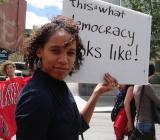
Caroline Tagny is the project assistant on EROTICS for the Women’s Rights Programme with the Association for Progressive Communications (www.apc.org). Holding a degree in graphic design, Caroline has always been interested in communication issues that go beyond layout. Caroline has been employed by Canadian civil society groups such as Communautique and Koumbit, two organisations that work primarily in the ICT field, and Alternatives, an APC member. She has been able to participate in the establishment of many ICT projects, including many community-oriented websites. She currently lives in South Africa and works on issues related to sexual rights.
Chenai Chair
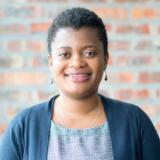
Chenai Chair’s interest in the ICT sector developed from learning of mobiles for development while writing her Master’s thesis titled, “Mobile Phones for Development: How Have Women in the Informal Sector used their Mobile Phones to Enhance Themselves and their Business?” in 2014. Chenai focuses on issues of ICT access and use and related policy development, and has worked on projects in South Africa, Zambia, Rwanda, Ghana and Kenya. Her areas of research include youth access and use, gendered issues of access and internet governance. She recently completed a policy paper on youth, internet and deprivation in Africa.
Dennis Chirwa
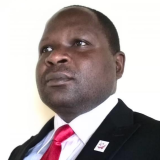
Denis Chirwa is currently the manager of the Malawi Digital Migration Project. The most challenging work he has done in his career was to install a transmitter antenna on one of the highest tower 102 m amidst criticism that it cannot support the antenna system. He describes the most exciting work he has done was to defend the Malawi digital network plan, design and the installation of the Malawi Digital platform which is now operational carrying all televisions in the country. He would like to see an Africa that has best inter connectivity and that is why he wants to be part of AfriSIG 2015.
Dora B. Mawutor
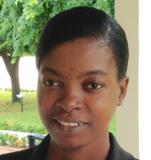
Dora Mawutor is the Programme Officer in charge of Research and Communications at the Media Foundation for West Africa (MFWA) which is based in Accra, Ghana. For almost two years now, she has been also been working as the Coordinator for the organisation’s Internet Freedom Programme which started in Ghana and is gradually extending to other West African countries. Some of the most exciting experiences she has had so far include the setting up of Civil Society Coalitions on Internet Freedom in Ghana and Liberia and the publication of the book: Spotlighting Indecent Election Campaign Language on Radio – an analysis of election campaign language in Ghana’s 2012 general elections. Challenging government policies and practices, on one hand, and seeking to collaborate with them, on the other hand, continues to be a challenge. “As an alumnus of AfriSIG, I look forward to engaging moreactively and meaningfully contributing to all sessions and bringing to bear experiences and examples from Ghana and the rest of West Africa. I also look forward to networking, upgradingmy knowledge and understanding of trending and emerging IG issues to enable me engage effectively in IG processes in West Africa especially as the MFWA is extending its internet freedom advocacy work in other West African countries.” On Twitter.
Gaelle Anta Fall-Koffi
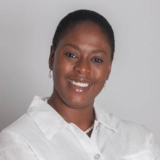
Gaelle Anta Fall is currently the Head of Communications and PR at AFRINIC, the Regional Internet Registry for Africa. She has been in this position since May 2014 coming from a background in Marketing, Events & Program Management, and Monitoring & Evaluation. This has been the most challenging job she has done in my career because it is an uncharted territory for her. The ways of the internet stopped at the pointer and click of my mouse. However it is also by far the most exciting thing I’ve been involved in. This past year has been a great learning experience and she looks forward to much more. She hopes to be able to participate actively in the discussions during AfriSIG but most of all I look forward to meeting great people and future collaborators while deepening my knowledge in internet governance.
Haile Kiros

Haile Kiros works for INSA as cyber policy and strategy researcher for the last four years. The field basically deals with globally contentious internet governance issues as critical internet resources, internet protocols/standards, cyber security, the public policy role of internet intermediaries and so on. What he has learnt during his four years’ in his career is that it is extremely difficult to grasp the whole sense of internet governance unless one knows his/her true north. “Reading numerous books about it without knowing where to go and start feels like swimming at the center of the Pacific Ocean. Novice researchers like me need to get trainings in order to meticulously pin point their direction.” This is why he is staunchly confident AfriSIG-2015 will be an eye-opening in that it will equip him with the compass imperative to discover the right direction. It will hopefully be one step forward.
Hodge Semakula
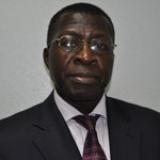
Mr Hodge Semakula who is a lawyer by profession, is the Executive Secretary/CEO of the East African Communications Organisation(EACO) where he has served for the last three and half years. Before joining EACO in 2012, he was employed by Uganda Communications Commission (UCC) as its Legal Counsel/ Director Legal Affairs where he served for 12 years. The most challenging thing in his career was developing and enforcing the regulatory/licensing framework of UCC especially in its initial years. On the other hand, one of the most exciting thing in his career has been leading and contributing to the growth and visibility of EACO in the last 3 years of his tenure as CEO of this regional organisation. He intends to gain knowledge, network and benchmark with other regions on issues of internet governance during the AfriSIG 2015.
James Mutandwa Madya
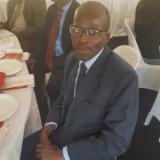
James Mutandwa Madya holds a Master of Science Degree in Rural and Urban Planning from the University of Zimbabwe. He has a varied career spanning 27 years ranging from development/project planning; road freight transport management; aviation management; and policy formulation and analysis in the housing, logistics and transport, and ICT sectors of Zimbabwe. He is currently deputy director (communications) in Zimbabwe’s Ministry of ICT and Courier Services. James is an alumnus of AfriSIG 2015 and is interested in all aspects of internet governance.
Kennedy Yegon
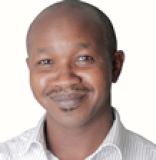
Kennedy Yegon is an Information Systems Specialist with 10 Years’ Experience, currently working for GESCI an international NGO Founded by UN ICT taskforce in 2003, as an ICT Officer. He leads in the technology front in all programmes being implemented by the organization in 16 African countries both in schools infrastructure support and capacity building programmes for public sector employees. Most challenging aspect about his work is lack of clear ICT strategies and Implementation of ICT policies internet usage in schools and the most exciting is development of e-learning platforms and integration of various tools to make learning exciting. He would like to know more about internet governance and policy and how to engage regulators in advancing internet policy down to decision makers. On LinkedIn.
Loyce Kabahima Kyogabirwe
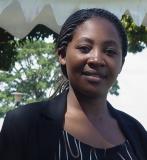
Loyce Kabahima works with Isis-WICCE, a feminist organization whose mandate is to strengthen women’s leadership and potential in post conflict settings. She hold a Master’s degree in Development Studies. She has over six years of managing and communicating women’s rights information and managing ICT4D projects. She is in charge of managing and communicating organizations information and knowledge using various communication channels and platforms such as website, social media and print. She has also managed ICT4D projects with grassroots women in Uganda that aimed at combating violence against women and prompting women’s rights using ICTs. The most exciting aspect of this work was seeing rural women embracing technology despite their low levels of education to challenge SGBV their community. She hopes to learn about the trends, debates and discussions taking place around internet governance and women’s rights. Her blog. On Twitter and Facebook.
Lweendo Hamukoma
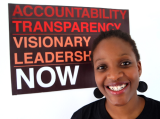
Lweendo Hamukoma is the Campaigns Organiser at SOS Coalition, and she has been part of the organisation since October 2014. Making this shift to the realm of public broadcasting, and the broader area freedom of expression issues has been one of the more challenging things she has undertaken. Her interests have always been more towards sociology, politics and developmental studies but public broadcasting allows for the development of platforms that combine a multiplicity of social rights. Being campaigns organiser has entailed lots of learning. She hopes AfriSIG 2015 will deepen her knowledge of internet governance and bring a fresh perspective to the community.
Mamothokoane Tlali
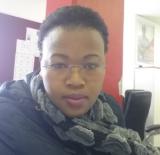
Mamothokoane Tlali is a network engineer working at Vodacom Lesotho since 2011 after completion of her Engineering Degree in Computer Systems and Networks at National University of Lesotho (NUL). About the same time, she also started volunteering at the Lesotho Internet Exchange point (LIXP) and dotLS, which is Lesotho’s country code top-level domain. She has been participating in the African Network Operator’s group (AFnog) workshop since 2012. She has attended African top-level domain (AfTLD) introductory training course, and now is actively among the team bringing back .ls back in the country. She is very keen on learning new technologies; one of the topics she would like to get deep into is internet governance.
Marufu Antony Chigaazira
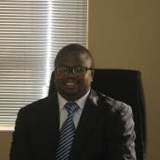
I am known in most business circles simply as Tony. I am the Executive Secretary of the Communications Regulators Association (CRASA), based in Gaborone Botswana. This is a position I assumed two years ago. Previously I was the Commercial Director for TelOne the incumbent telecommunication operator in Zimbabwe. My most exciting and challenging professional achievement to date is that I crafted and implemented the commercial strategy that steered TelOne through the worst economic crisis recorded in peaceful times. What I intend to bring to AfriSIG 2015 is the voice of the communications regulators of the Southern African Region. I hope to learn from the experiences of other participants and bring back some actionable items to enrich our region’s strategic plan.
Million Tolessa
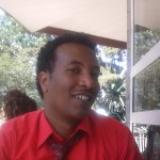
Million Tolessa is from Ethiopia and works as a senior cyber law researcher and drafter at Information Network Security Agency (INSA) since 2010. What he expects from the 3rd African School on Internet Governance is a learning experience that will help him understand the deeper issues of internet governance, making him capable of contributing something worthwhile in his field of work and country. He intends to be active in the class through sharing his experience. On Twitter.
Natasha Valerie Msonza
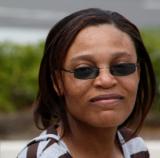
Natasha currently manages operations within Her Zimbabwe, a non-profit women’s rights organization that uses alternative media to bring important commentary to women’s issues and facilitates women’s activism using ICTs and digital tools. Natasha holds an Honours BSc degree in Media and Society studies, and a Masters degree in Human Development. She has a background in communications that spans over eight years. The most exciting and challenging thing she has done in her career has been to take a leap into the unknown; to support a dream that is now a three-year-old child called Her Zimbabwe. In her other life, Natasha is a human rights activist and volunteer digital security trainer, working with a small network of privacy advocates that provides training and technical support to activists and human rights defenders in Zimbabwe. At AfriSig 2015, Natasha hopes to contribute the knowledge she has gained over the years, pertaining to digital security, women’s rights and technology. She hopes to learn more about Internet governance, to be able to effectively facilitate advocacy work pertaining to privacy and closing the destructive Internet gender gap from a more informed perspective. On Twitter.
Nyakeh Yormah
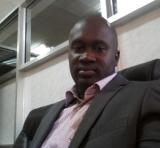
Nyakeh Yormah received his Bachelor in Electrical and Electronics Engineering (BEng) from the University of Sierra Leone and has been working in the ICT sector for more than seven years. He is presently a Chief Technology Officer at the Ministry of Information and Technology. During his career, his most challenging task was to plan and design the entire Telecommunications network of a new Telecoms Operator while his most exciting assignment happened to be the overhauling and upgrading the entire Local and Wide Area Network (LAN & WAN) at the Central Bank. “Participating in AfriSIG 2015 would enable me to engage in knowledge sharing with other participants which is an important factor in the formulation of policy document and helping Africa with regards the governance of internet”.
Olga Tsafack Koloko

Olga is a Cameroonian who has been working as a freelance translator (eng-french and vice versa) for the past 12 years and later also became a freelance digital security consultant and trainer. She loves working on women empowerment project as has the desire to see all women and girls become self-reliant through the use of the internet and ICTs. Olga is an Alumni of AfriSIG 2015, year during which she started being involved in internet governance issues and taking part in some of its processes. In addition to being a freelancer, she currently works with the Association for Progressive Communications (APC) as the Africa communications officer and French editor.
Palouis M. Thomasi
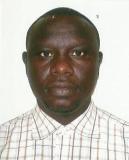
Pa Louis M. Thomasi works with the International Federation of Journalists (IFJ) as Programmes Officer for the Africa Region. At the IFJ he has been involved in the defense and promotion of the rights of journalists in the continent. Some challenging experiences have been to assist journalists who found themselves in conflict with the law. As a trade unionist, he has been instrumental in the formation of journalists’ trade unions in Lesotho, Malawi and Swaziland, as well as assisting other unions across the continent. From AfriSIG 2015 he hopes to learn and contribute in exploring effective ways to use the internet for the protection of journalists and freedom of expression across the continent. He is also interested in internet policy formation.
Rachel Kagoiya
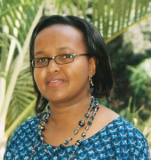
Rachel Kagoiya has been working at FEMNET (the African Women’s Development and Communication Network) for the last nine years as an Information Manager, a position which has enabled her to grow both professionally and personally as an upcoming young woman leader. Largely, her work entails capturing information around women’s rights and development, organizing (including repackaging) and sharing it with a wide spectrum of users via various platforms: website, blog, Facebook, Twitter, listserv, documentaries, publications and the Gender & Development Resource Centre. During AfriSIG 2015, she looks forward to learning and broadening my knowledge in internet governance and linkages to women’s rights as well as issues related to access and usage of the internet so as to contribute and engage in ongoing conversations at national and regional fora. On Facebook and Twitter.
Raphael Koffi
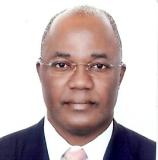
Dr. Raphael Koffi is Head of Telecommunication/ICT Division at the Economic Community of West African States (ECOWAS) Commission since 2006. He already hold certificates from Diplo Foundation on Introduction on Internet Governance and from USTTI, US DOJ and DOS on Cybersecurity. Prior to this position, he served as NEPAD Telecommunication Adviser to the Deputy Executive Secretary of the ECOWAS Secretariat from 2004 to 2006. Dr Koffi has been associate professor at the “Ecole Nationale Superieure des Télécommunications de Bretagne (ENSTBr)” in France and hold a PhD degree in Electronics.
Sami Salih
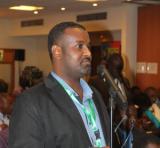
Dr. Sami Salih, founder and chair of the Sudanese IPv6 Task Force (SDv6TF) since 2010. During his position at the telecom regulatory authority (NTC Sudan) as head of R&D he participated in many events organized by ICT related organizations such as ITU, AfriNIC, ICANN and other regional and international events since 2006. Furthermore, he established an authorized training center for IPv6 in Sudan in collaboration with NAV6 Malaysia. He is appointed by ITU to develop national strategic migration plans toward deploying IPv6 in Chad, Comoros, Somalia, Yemen, and Palestine. Currently as SudREN CEO, he conducts a project to provide ICT with IPv6 enabled for all Sudanese Institutions. From his participation at the AfriSIG15, he aims to share the Sudanese experience toward being among the first few countries in Africa who exchange traffic using IPv6.
Sekoetlane Phamodi
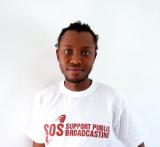
Sekoetlane Phamodi is a Black feminist activist who has his training in journalism and law. He has been involved in broadcasting and media advocacy for three years, leading public-interest interventions into legislative and policy reforms to broadcasting in South Africa. His approach to broadcasting policy and practice is locating technical issues within a social justice framework that the public can meaningfully engage with. He is most excited about the opportunity to share South African experiences as well learn more about those of the rest of the continent concerning online governance instruments and practice that promote safe and active net citizenship, access to information and freedom of expression. Sekoetlane is the national coordinator of the SOS Coalition which advocates for public broadcasting as a tool for social change. On Twitter and Facebook.
Senda Ben Jebara

Senda is the general secretary of Chouf, a tunisin feminist organization working on gender equality and women sexual and bodily rights. The Chouf experience has been itself, a challenge for her. Being a full time student and a member of a political party, as well as a board member of the organization has proven to be quite a challenge. The most exciting thing she got to do with Chouf was the preparation of The Chouftouhonna festival, which is an international feminist festival. Participating in the AfriSIG and gigX 2015 will allow me to share my experience with other participants and help me strengthen my knowledge on internet governance issues.
Sylvia Musalagnai

Sylia Musalagani is a Programme officer at Hivos East Africa for the past 3 years working on Freedom of expression. The most challenging and exciting activity in her career so far was being part of a panel in the Kenyan Internet Governance forum together with very high profile individuals in the sector. During AfriSIG 2015 she hopes to contribute her internet freedom program development experience and the challenges of working with different stakeholders. She also hopes to get more knowledge that will enable her to make more meaningful contributions in internet governance conversations in Africa. On Twitter.
Wassim Zoghlami
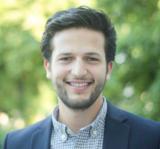
Wassim Zoghlami a Tunisian computer engineer, young Internet activist, HIVOS Internet Governance Fellow and a new author in “The Internet Policy Analyst Project “and an entrepreneur. He is also the chairman and co-founder of the Tunisian Center for Civic Engagement which aims to bridge the gap between Tunisian youth in educational institutions and NGOs focusing on youth volunteering and employment through ICT and digital skills. He has also been working on projects and campaigns about harnessing the power of technology to help people uphold human rights on issues such as freedom of expression, data protection and privacy, censorship and surveillance in Tunisia and the MENA region, he is also a strong advocate to open data and open educational resources and one of the Global Sharpers in Tunis. The African School on Internet Governance will be an opportunity to gain onsite knowledge about internet governance around the continent and to display and share initiatives and tools and platforms which can help uphold human rights in Africa. He also plans to share the Tunisian and the North African region experience and expand my network.
Yosr Jouini

Yosr Jouini is a Tunisian civil society activist, a blogger and a software engineering student. Her work focuses on bringing ICTs positive impact on society. Whether it’s about publishing articles on internet policies or contributing to multiple campaigns on and off line, Yosr has more than three years of experience on advocating to raise Tunisian citizens awareness about their rights. She’s interested in two main fields: transparency and Internet governance. Yosr is also Hivos’ Internet Governance in the MENA Region program fellow. And her articles on digital rights were published on multiple platforms. “AfriSIG 2015 is the best place for me to broaden my knowledge about internet governance within the African context and to share my experience with other participants.” On Twitter, LinkedIn and Facebook.
Yvonne Oluoch
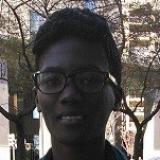
Yvonne is a developer and technology trainer at YaleCept Consultants for the past three years and the founder of S.K.I.R.T.S (Socially Keen Individuals Redefining Tech Spaces). Highlights of her career includes challenging the status quo and disrupting the norm by engaging young women voices in bold conversations on women rights and gender equity. As a global Changemate Fellow in digital rights activism, she has collaborated with women organizations like AMWIK and IWART in Kenya through digital security training forums to further the agenda of tech related violence, women and internet governance through advocacy. She is also a member of women in tech, Africa. Yvonne hopes to bring in novel ideas on digital rights activism and hopes to learn more on internet governance policy advocacy through effective engagement of stakeholders. On Twitter.
Zoe Titus
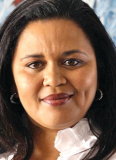
I am a former print journalist who has branced out into media development work in which I’ve been engaged with for the last 16 years. I currently work for the Media Institute of Southern Africa (MISA) which is the premium media freedom and freedom of expression advocacy organisation in southern Africa. Moving from mainstream media to media development, and coming to realise that many media development organisations work on an assumption that all journalists/media professionals understand and support press freedom. I have developed and participated in some exciting campaigns which have led to shaping continental, sub-regional and national laws and policies. Internet governance is still a relatively new issue in our organisation. I’m hoping to increase my knowledge on this issue with the full intention of developing an internal organisational strategy for MISA on the matter. Contribute… my specialised knowledge of media and the information sector.
